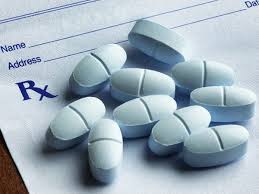
Pain Medicines After Surgery: What You Need to Know
Managing pain effectively after surgery is critical to a smooth recovery. Pain medicines help reduce discomfort, improve mobility, and allow you to perform essential recovery activities like walking and breathing exercises. The type of pain medication prescribed depends on the surgery, your overall health, and your specific needs.
Types of Pain Medicines
- Over-the-Counter (OTC) Pain Relievers
- Examples: Acetaminophen (Tylenol), ibuprofen (Advil, Motrin).
- Uses: For mild to moderate pain, especially after minor surgeries.
- Considerations: Ibuprofen helps with inflammation, while acetaminophen is easier on the stomach but must be monitored for liver health.
- Opioids
- Examples: Hydrocodone, oxycodone, morphine.
- Uses: For moderate to severe pain following major surgeries, such as joint replacements or abdominal procedures.
- Considerations:
- Short-term use only to prevent dependence.
- Side effects may include drowsiness, constipation, or nausea.
- Local Anesthetics
- Examples: Lidocaine patches, bupivacaine.
- Uses: Numb a specific area to provide targeted pain relief after procedures like hernia repairs or C-sections.
- Nerve Block Medications
- Examples: Ropivacaine, nerve catheters.
- Uses: Administered by anesthesiologists to numb a specific area for hours or days after surgery.
- Benefits: Reduces the need for systemic pain medications.
- Muscle Relaxants
- Examples: Cyclobenzaprine, methocarbamol.
- Uses: For surgeries involving muscles or spine, where spasms may occur.
- Multimodal Analgesia
- Approach: Combines different types of pain relief methods to minimize reliance on opioids.
- Examples: Combining acetaminophen, NSAIDs, and low-dose opioids.
Managing Pain at Home
- Follow the Prescription:
- Take medications as directed, even if the pain seems manageable, to prevent flare-ups.
- Taper Off Opioids:
- Use opioids only when necessary and switch to OTC pain relievers as soon as possible.
- Monitor Side Effects:
- Report issues like excessive drowsiness, difficulty breathing, or allergic reactions to your doctor immediately.
- Non-Medication Strategies:
- Use ice packs or heating pads as recommended.
- Practice gentle movement and stretching to improve circulation and reduce stiffness.
Common Side Effects of Pain Medications
- Opioids: Constipation, nausea, drowsiness, potential dependency.
- NSAIDs: Stomach irritation, potential bleeding with long-term use.
- Acetaminophen: Risk of liver damage if taken in excess.
When to Call Your Doctor
- Pain is not improving or getting worse.
- Side effects are severe or interfere with daily activities.
- You have questions about switching medications or adjusting doses.
Tips for Effective Pain Management
- Communicate openly with your healthcare team about your pain levels.
- Use medications proactively in the early recovery stages.
- Stay hydrated and follow dietary advice to prevent constipation caused by opioids.
By understanding your options and following medical advice, you can manage pain effectively and focus on healing after surgery.